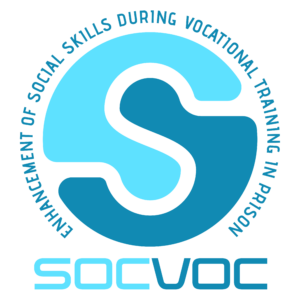Cooperation for innovation and the exchange of good practices
Motivation
In 2020, prisons across the EU were holding over half a million inmates, including both convicted persons, serving their final sentence, and persons accused of a crime. Living conditions in prisons are regulated by numerous laws and guidelines: from constitutional provisions to national criminal and penitentiary laws and international law principles. An essential element, when looking at prison conditions, is whether individual sentence plans are offered, and if so, whether they are properly designed and adequately implemented, so that the regime they foresee is truly designed to enable detainees to lead a responsible and crime-free life. The plans should include work, education, the training of 21st century skills (including digital skills) and other activities in preparation for release.
Bearing this in mind, the partnership has prioritized enhancing the social skills of prisoners while they are involved in vocational training. At the same time, it is a must to train educators working with adult learners in prisons to guarantee that they have the skills and competences necessary to be successful in this special environment.
Goal
The core of the project is to develop an easy to use guidebook consisting of good practices of methodologies of learning social skills to low-skilled adult learners while they are learning a profession and train the teachers how to use this information available on the project website. And at the same time offering exercise opportunities, digital and non-digital, on the matter to the learners in prison. In this way they can get started with the processing of the social skills, combined with getting to know a digital environment and starting to use it.
The project wants to promote the use of internet based training tools with adapted texts and exercises which are easy to read by the target group. The outputs and activities of this project can also be used by trainers in their own regular courses in the prisons of the project partners. By doing the exercises of the guidebook the learners can increase their vocational skills as well as their social and digital skills which are highly regarded by later employers after they are released.
The real innovation of this project is the fact that the specially developed materials will be easily accessible for both the teachers and the target group. For the teachers an open educational digital resource will be provided. For the target group in prison a tailor made secured digital environment and learning platform will be provided.

